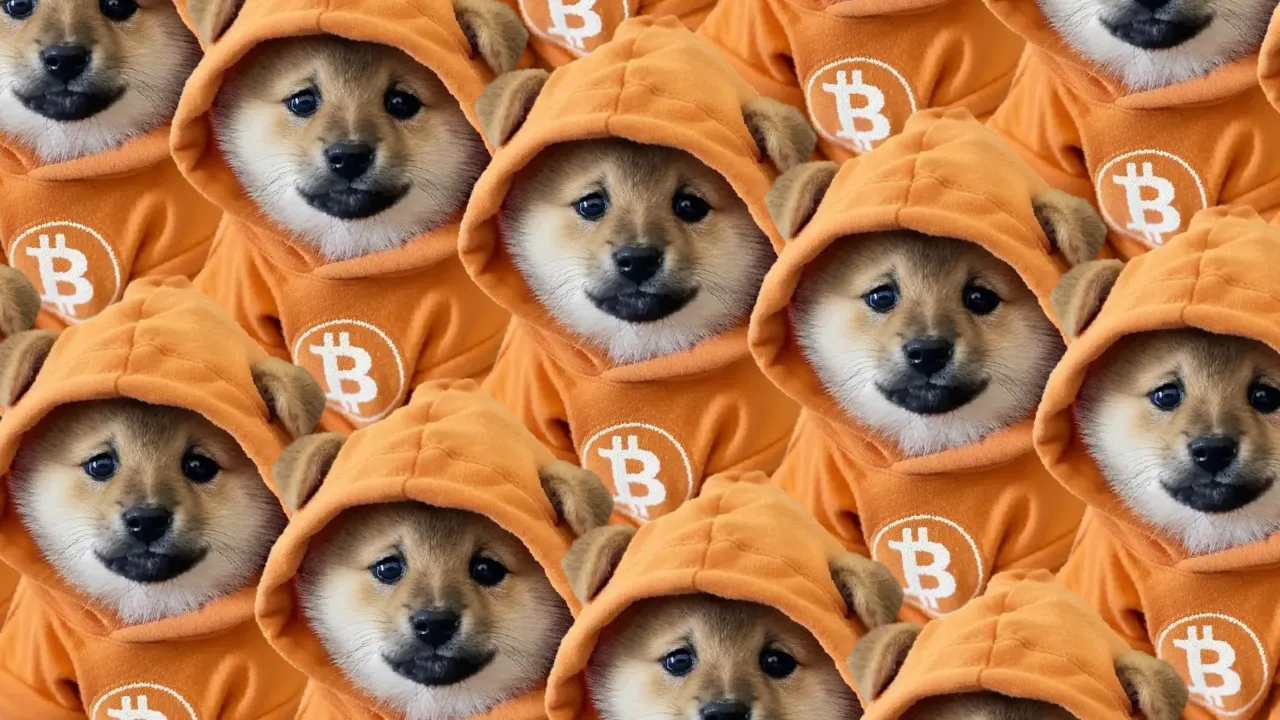The emerging market of Bitcoin-based meme coins showed signs of life Thursday, as the price of several so-called Runes tokens increased—all while the value of memetic assets on other networks fell.
The market capitalization of meme coins tracked by CoinGecko had fallen 4.6% over the past day to $66 billion, yet Bitcoin Runes token DOG•GO•TO•THE•MOON (aka DOG) has increased 20% to $0.007, as of this writing. Not far behind, the Bitcoin-based meme coin PUPS has also jumped 15% over the past 24 hours.
DOG is now up 85% over the last week alone, setting a new all-time high price of $0.007542 late Wednesday. It now has a market cap of nearly $730 million.
Like many meme coins, the Bitcoin-based assets have existed for only a short time. But their launch is linked to the release of Bitcoin Runes, a protocol developed by Casey Rodarmor, who previously popularized NFT-like assets (dubbed inscriptions) on Bitcoin after his Ordinals protocol launched last year.
Described by Rodarmor as a “venue for people to create shitcoins,” several Runes are competing for attention amid a steady sluice of Solana-based meme coins that have been launched through platforms like Pump.fun.
And since Runes’ debut in April, alongside Bitcoin’s fourth halving event, there’s been a noticeable drift in terms of interest, Blockspace Media co-founder Charlie Spears told Decrypt. But that’s been true of BRC-20 tokens on Bitcoin, as well, minted via an earlier fungible token protocol.
“Right now, neither Runes nor BRC-20s have a ton of narrative momentum,” he said.
The popularity of meme coins on Ethereum and Solana, relative to those based on Bitcoin, is reflective of a technical gap and lackluster user experience, Spears said. Meme coins have existed for several years on other networks, yet on Bitcoin, the concepts and tech are fresh.
“Right now, especially with memes coins being the resurgent sector in crypto, [...] people don't really care how a Rune or BRC-20 works,” Spears said. “They want to trade them as quickly and with as much liquidity as possible.”
$DOG is at a $740M market cap and people don't even know how to buy it yet
I'm honestly scared of what will happen when we get our first Tier-1 CEX listing and increase liquidity by an order of magnitude
I've never seen a memecoin move upward this violently before
— Leonidas (@LeonidasNFT) May 30, 2024
Even though the price of Runes has increased notably on Thursday, the assets’ trading volume was tiny compared to other meme coins. The aforementioned DOG has notched $97 million in trading volume over the past day, while the Ethereum-based Pepecoin has racked up $1.5 billion in the same span.
Created by the pseudonymous Twitter (aka X) influencer Leonidas, DOG was airdropped after Runes’ release to those who held assets from Leonidas’ Runestone Ordinals project. On Thursday, the account highlighted DOG’s performance amid “a sea of red” for other meme coins.
Whether it’s other meme coins like Floki, Bonk, or Dogwifhat, a cadre of canine-themed coins have spawned in Dogecoin’s wake. Cheered on by Tesla CEO Elon Musk in 2021, Dogecoin’s rapid popularity has effectively created a pseudo-template for other memetic assets to follow on networks like Ethereum and Solana.
Among dog-themed tokens, the Bitcoin-based DOG was top in terms of weekly gains, posting a 73% increase. However, several tokens inspired by Former President Donald Trump have increased more—speaking to the shifting political backdrop around crypto in the U.S.
Decentralized exchanges, where anyone can list a token, are core to how many meme coins trade as novel assets, which are often attached to little utility or information. Currently, however, Runes primarily trade on centralized exchanges like OKX or marketplaces like Magic Eden.
Over the past 30 days, the total sales volume of Bitcoin-based collectibles (including BRC-20s, Ordinals inscriptions, and Runes) has plummeted 70% to $180 million compared to the previous span, according to CryptoSlam data. But as more robust solutions for trading Runes are built out, Spears said Dog’s performance can challenge the narrative that “Runes are dead.”
“Leonidas’ DOG•GO•TO•THE•MOON token was pumping pretty hard, and that generated a lot of internet chatter,” Spears said. “I think right now, everyone’s waiting to see if in fact Runes as a market sector for fungible tokens does come back.”
Edited by Andrew Hayward
Disclaimer
The views and opinions expressed by the author are for informational purposes only and do not constitute financial, investment, or other advice.

